|
Books Should Be Free Loyal Books Free Public Domain Audiobooks & eBook Downloads |
|
|
Books Should Be Free Loyal Books Free Public Domain Audiobooks & eBook Downloads |
|
Poetry |
|---|
|
Book type:
Sort by:
View by:
|
By: James Russell Lowell (1819-1891) | |
|---|---|
 The Biglow Papers
The Biglow Papers
| |
 The Vision of Sir Launfal And Other Poems
The Vision of Sir Launfal And Other Poems
| |
 Present Crisis
Present Crisis
James Russell Lowell was an American Romantic poet, critic, editor, and diplomat. He is associated with the Fireside Poets, a group of New England writers who were among the first American poets who rivaled the popularity of British poets. These poets usually used conventional forms and meters in their poetry, making them suitable for families entertaining at their fireside. "Lowell's poem "The Present Crisis," an early work that addressed the national crisis over slavery leading up to the Civil War, has had an impact in the modern civil rights movement... | |
 Miscellaneous Poems
Miscellaneous Poems
This is the second part of James Russell Lowell's collected poems: the Miscellaneous Poems. This series of poems covers, as the title implies, a wide range of topics, shaped into Lowell's beautiful poetry. - Summary by Carolin | |
 Voyage to Vinland
Voyage to Vinland
LibriVox volunteers bring you 8 recordings of The Voyage to Vinland by James Russell Lowell. This was the Fortnightly Poetry project for March 10, 2013.Although this version of the poem is sometimes printed separately, it is really only part of a longer poem (approximately one fifth of the whole). The complete work has 3 parts and this is only part of the last section. Only about one fourth of Gudrida's song of prophecy is included here. | |
By: James Stephens | |
|---|---|
 There is a Tavern in the Town
There is a Tavern in the Town
The soul of Irish wit is captured in this unique tale of a barstool philosopher, the concluding story from 'Here Are Ladies' by James Stephens. (Introduction by iremonger) | |
By: James T. Fields (1817-1881) | |
|---|---|
 The Owl Critic
The Owl Critic
James Thomas Fields was an American publisher, editor, and poet. At the age of 14, Fields took a job at the Old Corner Bookstore in Boston. His first published poetry was included in the Portsmouth Journal in 1837 but he drew more attention when, on September 13, 1838, he delivered his “Anniversary Poem” to the Boston Mercantile Library Association. | |
By: James Thomson (1834-1882) | |
|---|---|
 The City of Dreadful Night
The City of Dreadful Night
| |
 Seasons
Seasons
The Seasons is a series of four long poems in blank verse by the Scottish poet James Thomson, each poem describing one of the four seasons. The poems are replete with various scenes of nature described with loving detail, as well as Thomson's view of the proper relationship between humans and nature, which anticipates the attitudes of the Romantics. "Spring," which was published in 1728, first brought Thomson to mainstream attention. He followed it up with "Summer," "Winter," and "Autumn," publishing all four as The Seasons in 1730... | |
By: James W. (James William) Foley (1874-1939) | |
|---|---|
 Some One Like You
Some One Like You
| |
By: James W. Foley (1874-1939) | |
|---|---|
 Through All The Years
Through All The Years
Here is a sweet little poem to touch your heart and share with your best friends. The words are heartfelt, simple and trip off the tongue in sing-song fashion. The challenge becomes, as my English teacher and the poetry pundits oft complain of, how to read it without that sing-song pattern becoming monotonous. Let's see how ourers do. - Summary by Michele Fry | |
By: James Weldon Johnson (1871-1938) | |
|---|---|
 Word of an Engineer
Word of an Engineer
James Weldon Johnson was an American author, educator, lawyer, diplomat, songwriter, and civil rights activist. Johnson is best remembered for his leadership within the National Association for the Advancement of Colored People (NAACP), where he started working in 1917, being chosen as the first black executive secretary of the organization, effectively the operating officer. He was first known for his writing, which includes poems, novels, and anthologies collecting both poems and spirituals of black culture. | |
 Sunset in the Tropics
Sunset in the Tropics
LibriVox volunteers bring you 14 recordings of "Sunset in the Tropics." This is the Weekly Poetry for the week of August 10, 2014.The author of this poem, James Weldon Johnson, served as U. S. Consul to Venezuela and Nicaragua, was an early leader in the NAACP and contributed to the Harlem Renaissance of the 1920s. He had a broad appreciation for black artists, musicians and writers, and worked to heighten awareness of their creativity. (from Wikipedia) | |
By: James Whitcomb Riley (1849-1916) | |
|---|---|
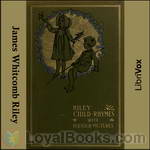 Selected Riley Child-Rhymes
Selected Riley Child-Rhymes
Riley was an American writer known as the “Hoosier poet”, and made a start writing newspaper verse in Hoosier dialect for the Indianapolis Journal in 1875. His favorite authors were Burns and Dickens. This collection of poems is a romanticized and mostly boy-centered paean to a 19th century rural American owning-class childhood. I’ve included the pieces I did because they’re the ones I most enjoyed when I read a copy of the collection handed down from my great-grandfather. | |
 A Defective Santa Claus
A Defective Santa Claus
| |
 Scrawl
Scrawl
James Whitcomb Riley was an American writer, poet, and best selling author, born in the town of Greenfield, Indiana. During his lifetime he was known as the "Hoosier Poet" and "Children's Poet" for his dialect works and his children's poetry respectively. His poems tended to be humorous or sentimental, and of the approximately one thousand poems that Riley authored, the majority are in dialect. | |
 An Old Sweetheart of Mine
An Old Sweetheart of Mine
| |
 In The Dark
In The Dark
James Whitcomb Riley was an American writer, poet, and best-selling author. During his lifetime he was known as the "Hoosier Poet" and "Children's Poet" for his dialect works and his children's poetry respectively. His poems tended to be humorous or sentimental, and of the approximately one thousand poems that Riley authored, the majority are in dialect. Riley began his career writing verses as a sign maker and submitting poetry to newspapers. Thanks in part to an endorsement from poet Henry Wadsworth Longfellow, he eventually earned successive jobs at Indiana newspaper publishers during the latter 1870s... | |
 Riley Love-Lyrics
Riley Love-Lyrics
| |
 Lockerbie Street
Lockerbie Street
volunteers bring you 16 recordings of Lockerbie Street by James Whitcomb Riley. This was the Fortnightly Poetry project for August 28, 2022. ------ James Whitcomb Riley was an American writer and poet, who lived in Indianapolis. Here among his books and his souvenirs, the poet spent his happy and contented days. To reach this restful spot, the pilgrim must journey to Lockerbie Street, a miniature thoroughfare half hidden between two more commanding avenues. It is little more than a lane, shaded, unpaved, and from end to end no longer than a five minutes' walk, but its fame is for all time. | |
 God Bless Us Everyone
God Bless Us Everyone
James Whitcomb Riley was an American writer, poet, and best-selling author. During his lifetime he was known as the "Hoosier Poet" and "Children's Poet" for his dialect works and his children's poetry respectively. His poems tended to be humorous or sentimental, and of the approximately one thousand poems that Riley authored, the majority are in dialect. His famous works include "Little Orphant Annie" and "The Raggedy Man". | |
 Pansies
Pansies
volunteers bring you 18 recordings of Pansies by James Whitcomb Riley. This was the Weekly Poetry project for May 3, 2020. ------ Another ode to Spring and one of the popular flowers starting to bloom. Taken from Rhymes of Childhood by James Whitcomb Riley - Summary by David Lawrence | |
 In A Box
In A Box
James Whitcomb Riley was an American writer, poet, and best-selling author. His poems tended to be humorous or sentimental, and of the approximately one thousand poems that Riley authored, the majority are in dialect. His famous works include "Little Orphant Annie" and "The Raggedy Man". - Summary by Wikipedia | |
 If I knew What Poets Know
If I knew What Poets Know
volunteers bring you 23 recordings of If I knew What Poets Know by James Whitcomb Riley. This was the Weekly Poetry project for July 5, 2020. ------Riley's chief legacy was his influence in fostering the creation of a Midwestern cultural identity and his contributions to the Golden Age of Indiana Literature. With other writers of his era, he helped create a caricature of Midwesterners and formed a literary community that produced works rivaling the established eastern literati. There are many memorials dedicated to Riley, including the James Whitcomb Riley Hospital for Children. | |
By: James Williams (1851-1911) | |
|---|---|
 Briefless Ballads and Legal Lyrics Second Series
Briefless Ballads and Legal Lyrics Second Series
| |
By: Jane Eliza Coolidge Chapman (1839-1912) | |
|---|---|
 Easter Hymns
Easter Hymns
Lockwood, Brooks & Co. Have nearly ready the volume of “Easter Hymns” selected by Miss J.E.C. Chapman, an accomplished lady of Boston, and introduced by a note from her uncle, Rev. Dr. J.I.T. Coolidge. The hymns are excellently chosen, and the volume will be brought out in tasteful style. It will commend itself to the favor of all Episcopalians, and to the devout in all denominations, to whom Easter is not a mere churchly date but a day of deep and glad significance. – The Publisher’s Weekly, March 18th, 1876. | |
By: Jane Taylor (1783-1824) | |
|---|---|
 Star
Star
To take you back to your childhood, LibriVox volunteers bring you 28 recordings of The Star by Jane Taylor. This was the Weekly Poetry project for March 24, 2013. | |
 Rhymes for the Nursery
Rhymes for the Nursery
This early 19th-century children's poetry collection by Jane and Ann Taylor is little-known today, but contains the original version of Twinkle, Twinkle, Little Star, known then as just The Star. Also included are poems about why you shouldn't kill kittens, birds and flies, a poem about how you can be seriously scarred if you play with fire, and a poem about a homeless man who cries himself to sleep because of how naughty he was a child. | |
By: Jared Barhite | |
|---|---|
 Our Profession and Other Poems
Our Profession and Other Poems
| |
By: Jean de Esque (1879-) | |
|---|---|
 Betelguese A Trip Through Hell
Betelguese A Trip Through Hell
| |
By: Jean de La Fontaine (1621-1695) | |
|---|---|
 Fables in Rhyme for Little Folks
Fables in Rhyme for Little Folks
Several of La Fontaine’s fables, translated into English by W. T. Larned. | |
 Old Man and the Ass
Old Man and the Ass
LibriVox volunteers bring you 8 recordings of The Old Man and the Ass by Jean de La Fontaine. (There was no translator acknowledged in the text.) This was the Weekly Poetry project for July 7, 2013.Jean de La Fontaine was the most famous French fabulist and one of the most widely read French poets of the 17th century. He is known above all for his Fables, which provided a model for subsequent fabulists across Europe and numerous alternative versions in France, and in French regional languages.According to Flaubert, he was the only French poet to understand and master the texture of the French language before Hugo... | |
 Fables of La Fontaine
Fables of La Fontaine
Jean de la Fontaine's fables were very well-known all over Europe during his life, and are now slowly being rediscovered. This edition contains 240 fables or fairy tales and a biography of Jean de la Fontaine and Aesop, containing the most well-known fables in existence, as well as some lesser-known fables and stories. Walter Thornbury's translation furthermore sets the fables into memorable rhymes. - Summary by Carolin | |
By: Jean Ingelow (1820-1897) | |
|---|---|
 From Queen's Gardens
From Queen's Gardens
This is the second part of a collection of poetry written by English female poets. This part of From Queen's Gardens is a collection of 30 poems by Jean Ingelow. - Summary by Carolin | |
By: Jean M. Snyder | |
|---|---|
 A Little Window
A Little Window
| |
By: Jean McKishnie Blewett (1862-1934) | |
|---|---|
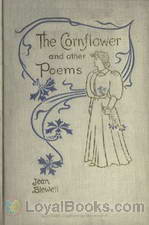 Chore Time
Chore Time
Jean McKishnie Blewett (4 November 1862 – 19 August 1934) was a Canadian journalist, author and poet. Blewett was a regular contributor to The Globe, a Toronto newspaper and in 1898 became editor of its Homemakers Department. In 1919, assisted by the Imperial Order of the Daughters of the Empire, she published a booklet titled Heart Stories to benefit war charities. During this time she regularly lectured on topics such as temperance and suffragism. She used the pseudonym Katherine Kent for some of her writing... | |
 Christy and The Pipers
Christy and The Pipers
volunteers bring you 9 recordings of Christy and The Pipers by Jean McKishnie Blewett. This was the Fortnightly Poetry project for November 4, 2018. ------ This poem, set in Scotland, tells of a woman's reaction to the Pipes . | |
 Heart Songs
Heart Songs
This is a volume of poetry by Jean Blewett. In this collection, the Canadian poet's most beautiful love songs and poetry is brought together. - Summary by Carolin | |
By: Jenny Grahame (c. 1800-?) | |
|---|---|
 Wedlock
Wedlock
This poem is taken from A Book of Women’s Verse published in 1921. ( | |
By: Jessie C. Howden (1857-1935) | |
|---|---|
 Churchyard by the Sea
Churchyard by the Sea
volunteers bring you 13 recordings of The Churchyard by the Sea by Jesse C. Howden. This was the Fortnightly Poetry project for April 18, 2021. ------ Mrs. Jesse Howden was a Scottish Poet. Some of her work was featured in the Chambers's Journal of Popular Literature, Science and Art. This poem is taken from the No. 8.—Vol. I., Saturday, February 23, 1884 issue. - Summary by David Lawrence | |
By: Jessie Duncan [Translator] Westbrook | |
|---|---|
 Hindustani Lyrics
Hindustani Lyrics
| |
By: Jessie E. Sampter (1883-1938) | |
|---|---|
 Blessings for Chanukah
Blessings for Chanukah
volunteers bring you 12 recordings of Blessings for Chanukah by Jessie E. Sampter. This was the Weekly Poetry project for December 9, 2018. ------ Jessie Sampter was a Jewish educator, poet, and Zionist pioneer. She was born in New York City and immigrated to Palestine in 1919. In her twenties, she joined the Unitarian Church and began writing poetry. Her poems and short stories emphasized her primary concerns: pacifism, Zionism, and social justice. - Summary by Wikipedia | |
By: Jessie Pope (1868-1941) | |
|---|---|
 Valentine (From an old Lover)
Valentine (From an old Lover)
Jessie Pope was an extremely patriotic English poet, writer and journalist, who remains best known for her patriotic motivational poems published during World War I. This poem is from Paper Pellets (1907), an anthology of humorous verse. | |
By: Jewish Publication Society of America | |
|---|---|
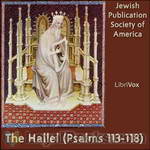 The Hallel (Psalms 113-118)
The Hallel (Psalms 113-118)
Hallel (Hebrew: הלל “Praise [God]“) is part of Judaism’s prayers, a verbatim recitation from Psalms 113-118, which is used for praise and thanksgiving that is recited by observant Jews on Jewish holidays. Summary from WikipediaRead by Délibáb, D.E. Wittkower, Jc Guan, Katie Gibboney, Leon Mire, and Scott Sherris | |
By: Johan Olof Wallin (1779-1839) | |
|---|---|
 The Angel of Death
The Angel of Death
| |
By: Johann Wolfgang von Goethe (1749-1832) | |
|---|---|
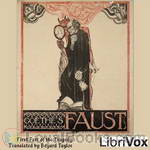 Faust, Part 1
Faust, Part 1
Faust is the protagonist of a classic German legend; a highly successful scholar, but also dissatisfied with his life, and so makes a deal with the devil, exchanging his soul for unlimited knowledge and worldly pleasures.Johann Wolfgang von Goethe's Faust is a tragic play in two parts. It is Goethe's most famous work and considered by many to be one of the greatest works of German literature.This first part of Faust is not divided into acts, but is structured as a sequence of scenes in a variety of settings. After a dedicatory poem and a prelude in the theatre, the actual plot begins with a prologue in Heaven and Scene 1 in Faust's study. | |
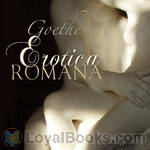 Erotica Romana
Erotica Romana
Also known as the "Roman Elegies," Erotica Romana is von Goethe's literary tribute to human sexuality and eroticism. Written in 24 elegies to emulate classical Roman elegy writers such as Tibullus, Propertius, and Catullus, von Goethe creates a lyrical work of art that has often been subject to censorship. | |
 Faust — Part 1
Faust — Part 1
| |
 May Song
May Song
Johann Wolfgang von Goethe was a German writer and statesman. His body of work includes epic and lyric poetry written in a variety of metres and styles; prose and verse dramas; memoirs; an autobiography; literary and aesthetic criticism; treatises on botany, anatomy, and colour; and four novels. In addition, numerous literary and scientific fragments, more than 10,000 letters, and nearly 3,000 drawings by him are extant. | |
 Faust; a Tragedy, Translated from the German of Goethe
Faust; a Tragedy, Translated from the German of Goethe
| |
 Over Every Hill
Over Every Hill
Johann Wolfgang von Goethe was a German writer and statesman. His works include four novels; epic and lyric poetry; prose and verse dramas; memoirs; an autobiography; literary and aesthetic criticism; and treatises on botany, anatomy, and colour. In addition, there are numerous literary and scientific fragments, more than 10,000 letters, and nearly 3,000 drawings by him extant. | |
By: John Brownlie (1857-1925) | |
|---|---|
 Hymns of the Early Church
Hymns of the Early Church
This collection of hymns have been translated from the poetry to the Latin church, arranged in the order of the Christian year. "This volume is intended for hours of devotion, and the vast storehouse of sacred poetry of the Latin Church has been put under tribute to supply the material," writes the author, Reverend John Brownlie, in the preface. The collection includes hymns for Christmas, Easter, All Saints' Day, Advent, and more. | |
By: John Buchan (1875-1940) | |
|---|---|
 The Moon Endureth: Tales and Fancies
The Moon Endureth: Tales and Fancies
| |
By: John Clare (1793-1864) | |
|---|---|
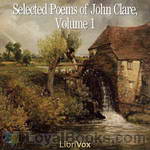 Selected Poems of John Clare
Selected Poems of John Clare
John Clare (1793 – 1864) was a farm labourer in the village of Helpstone, Northamptonshire, who became arguably England’s greatest nature poet. He rose to fame when his ‘Poems Descriptive of Rural Life and Scenery’ was published in 1820. His language preserves many local dialect words in a mixture of classical forms and heart-felt love of country life and nature. The poems in this collection are from his early career, and are largely free of pointers to his later mental illness. | |
 Poems
Poems
John Clare was a working-class English poet, best known for his poetic descriptions of the English Countryside. He is also one of the few popular poets of the 19th century, who, after being largely forgotten for years after their deaths, is being rediscovered in our time. This is a selection of John Clare's poems, suitable as an introduction into his work for those who do not know him. Readers who already did know Clare may like to discover poems that are not quite as well-known today. - Summary by Carolin | |
By: John Courtenay (1738-1816) | |
|---|---|
 A Poetical Review of the Literary and Moral Character of the late Samuel Johnson (1786)
A Poetical Review of the Literary and Moral Character of the late Samuel Johnson (1786)
| |
By: John D. Cossar | |
|---|---|
 A Leaf from the Old Forest
A Leaf from the Old Forest
| |
By: John Donne (1572-1631) | |
|---|---|
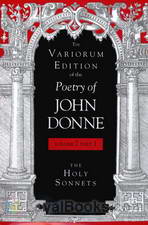 Holy Sonnets
Holy Sonnets
John Donne (1572 – March 31, 1631) was a Jacobean poet and preacher, representative of the metaphysical poets of the period. His works, notable for their realistic and sensual style, include sonnets, love poetry, religious poems, Latin translations, epigrams, elegies, songs, satires and sermons. His poetry is noted for its vibrancy of language and immediacy of metaphor, compared with that of his contemporaries. Towards the end of his life Donne wrote works that challenged death, and the fear that it inspired in many men, on the grounds of his belief that those who die are sent to Heaven to live eternally... | |
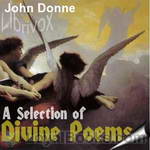 A Selection of Divine Poems
A Selection of Divine Poems
John Donne was an English Jacobean preacher, sometime lawyer, later in life a Member of Parliament and Royal Chaplain. Marrying for love against the wishes of his influential father-in-law; Donne's career was cast into shadow: forcing him to support his wife, Anne, as best he might under a specter of unforgiving penury. Despite such hardships - perhaps because of them - Donne's writings demonstrate a mastery of poetry layered with metaphysical meaning and mystery: which continues to delight and challenge modern-day readers... | |
 To His Mistress Going to Bed
To His Mistress Going to Bed
John Donne was an English poet and cleric in the Church of England. He is considered the pre-eminent representative of the metaphysical poets. His works are noted for their strong, sensual style and include sonnets, love poems, religious poems, Latin translations, epigrams, elegies, songs, satires and sermons. His poetry is noted for its vibrancy of language and inventiveness of metaphor, especially compared to that of his contemporaries. Donne's style is characterised by abrupt openings and various paradoxes, ironies and dislocations... | |
 Anniversary Poems
Anniversary Poems
Elizabeth Drury, daughter of Donne's patron, Sir Robert Drury, died in 1610. A year later Donne laments her hyperbolically as the soul of the created universe. In "An Anatomy of the World: The First Anniversary," he poetically scrutinizes that year-old corpse, the world, as if he were performing an autopsy (an "anatomy"). He finds it corrupt in every part, the dead woman having carried with her every spark of goodness it once contained. To commemorate the second anniversary of Miss Drury's death,... | |
 Goodfriday, 1613. Riding Westward
Goodfriday, 1613. Riding Westward
John Donne was an English poet and cleric in the Church of England. Despite his great education and poetic talents, Donne lived in poverty for several years, relying heavily on wealthy friends. He spent much of the money he inherited during and after his education on womanising, literature, pastimes, and travel. In 1601, Donne secretly married Anne More, with whom he had twelve children. In 1615, he became an Anglican priest, although he did not want to take Anglican orders. He did so because King James I persistently ordered it. In 1621, he was appointed the Dean of St Paul's Cathedral in London. He also served as a member of Parliament in 1601 and in 1614. | |
 John Donne's Satires
John Donne's Satires
Donne’s Style In John Donne’s day, a satire was such a poem as a satyr might compose. Satyrs were rough, savage creatures in Greek mythology, human to the waist but goat from there down. That is the reason that Donne’s style in these poems exceeds his normal difficulty in syntax, vocabulary, thought, and meter. His age enjoyed untangling such puzzles, and some poets cultivated obscurity as an art, called asprezza. Wordplay like “while bellows pant below” , where the same syllables, stressed differently, produce two different words almost side by side, entertained them... | |
 Holy Sonnets (version 2)
Holy Sonnets (version 2)
The Holy Sonnets—also known as the Divine Meditations or Divine Sonnets—are a series of nineteen poems by the English poet John Donne (1572–1631). The sonnets were first published in 1633—two years after Donne's death. | |
By: John Drinkwater (1882-1937) | |
|---|---|
 Tides
Tides
This is a volume of poetry by John Drinkwater. The English poet and playwright was a close associate of, among others, Rupert Brooke, before World War I, and continued a successful career as author and playwright after the war and until his death in 1937. This is a small collection of only 19 of his earlier poems. - Summary by Carolin | |
 Symbols
Symbols
John Drinkwater was an English poet and dramatist. In the period immediately before the First World War he was one of the group of poets associated with the Gloucestershire village of Dymock, along with Rupert Brooke and others. - Summary by Wikipedia | |
By: John Dryden (1631-1700) | |
|---|---|
 Absalom and Achitophel
Absalom and Achitophel
John Dryden published Absalom and Achitophel: A Poem in 1681. It is an elaborate historical allegory using the political situation faced by Kind David (2 Samuel 14-18) to mirror that faced by Charles II. Each monarch had a son whom a high-ranking minister attempted to use against him. James Scott, first Duke of Monmouth, Charles II's illegitimate son, was detected planning a rebellion late in 1681, supposedly instigated by the Earl of Shaftesbury, who was tried for high treason, and it is believed that Dryden wrote the poem in an effort to sway the jury in his trial... | |
 Dryden vs Shadwell - a Poetic Duel
Dryden vs Shadwell - a Poetic Duel
Throughout history there have been many creative artists whose fame depends largely on their association with a much greater artist. Such the case of Thomas Shadwell, poet and prolific writer of low brow comedies, who is today most famous as the butt of satire by one of greatest and most influential English poets, John Dryden. Shadwell and Dryden were at first colleagues and collaborators, but later fell out over some sharp divergences of opinion. In particular, Dryden disagreed with Shadwell's high estimation of Ben Jonson, and even more of the latter's claim to be be Jonson's artistic heir... | |
 Discourses on Satire and on Epic Poetry
Discourses on Satire and on Epic Poetry
| |
By: John Frederick Freeman (1880-1929) | |
|---|---|
 Listening
Listening
volunteers bring you 23 recordings of Listening by John Frederick Freeman. This was the Weekly Poetry project for March 20, 2022. ------ The poet describes a pasture in the evening. | |
By: John Gower (1330?-1408) | |
|---|---|
 Confessio Amantis, or, Tales of the Seven Deadly Sins
Confessio Amantis, or, Tales of the Seven Deadly Sins
| |
By: John Gray (1866-1934) | |
|---|---|
 Dial: The First Number of the Series
Dial: The First Number of the Series
The Dial was an art magazine, which ran to five issues between 1889 and 1897. It was edited and published by Charles Ricketts and Charles Shannon from The Vale, their shared home in Chelsea, London. Contributors to this first number include the editors, R. Savage, and the poet John Gray . - Summary by Rob Marland | |
By: John Greenleaf Whittier | |
|---|---|
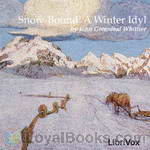 Snow-Bound: A Winter Idyl
Snow-Bound: A Winter Idyl
A 750-line idyllic poem about a snow-storm from the narrator’s childhood. | |
 Snow-Bound A Winter Idyll
Snow-Bound A Winter Idyll
| |
 Christmas Carmen
Christmas Carmen
John Greenleaf Whittier was an American Quaker poet and advocate of the abolition of slavery in the United States. Frequently listed as one of the Fireside Poets, Whittier was influenced by the Scottish poet Robert Burns. | |
 The Works of Whittier, Volume III (of VII) Anti-Slavery Poems and Songs of Labor and Reform
The Works of Whittier, Volume III (of VII) Anti-Slavery Poems and Songs of Labor and Reform
| |
 Anti-Slavery Poems I. From Volume III., the Works of Whittier: Anti-Slavery Poems and Songs of Labor and Reform
Anti-Slavery Poems I. From Volume III., the Works of Whittier: Anti-Slavery Poems and Songs of Labor and Reform
| |
 Anti-Slavery Poems III. From Volume III., the Works of Whittier: Anti-Slavery Poems and Songs of Labor and Reform
Anti-Slavery Poems III. From Volume III., the Works of Whittier: Anti-Slavery Poems and Songs of Labor and Reform
| |
 Songs of Labor and Reform From Volume III., the Works of Whittier: Anti-Slavery Poems and Songs of Labor and Reform
Songs of Labor and Reform From Volume III., the Works of Whittier: Anti-Slavery Poems and Songs of Labor and Reform
| |
 Anti-Slavery Poems II. From Volume III., the Works of Whittier: Anti-Slavery Poems and Songs of Labor and Reform
Anti-Slavery Poems II. From Volume III., the Works of Whittier: Anti-Slavery Poems and Songs of Labor and Reform
| |
By: John Hay (1835-1905) | |
|---|---|
 White Flag
White Flag
John Milton Hay was an American statesman and official whose career in government stretched over almost half a century. Beginning as a private secretary and assistant to Abraham Lincoln, Hay's highest office was United States Secretary of State under Presidents William McKinley and Theodore Roosevelt. Hay was also an author and biographer and wrote poetry and other literature throughout much of his life. - Summary by Wikipedia | |
By: John Hay Beith (1876-1952) | |
|---|---|
 Good Dog Book
Good Dog Book
A collection of adult stories and poems - sad, humorous, and adventurous - about Man's Best Friend. NOTE: Most of these selections contain violence that will be objectionable to some listeners. - Summary by TriciaG | |
By: John Huston Finley (1863-1940) | |
|---|---|
 Red Cross Spirit Speaks
Red Cross Spirit Speaks
LibriVox readers bring you 19 recordings of The Red Cross Spirit Speaks by John H. Finley.At this time of year, all around the world, we remember the fallen and those who served their countries in time of war and other calamity. This poem reminds us of the dedication of the Red Cross, and the comfort they brought and, together with the Red Crescent, still bring, to the wounded, dying and distressed. John Huston Finley headed the Red Cross Commission in Palestine during the First World War. | |
 Soldiers' Recessional
Soldiers' Recessional
Reprinted from Scribner’s Magazine for June, 1904, in an edition of forty copies for private distribution, by the courtesy of Charles Scribner’s Sons | |
By: John Jenkins (1821-1896) | |
|---|---|
 The Poetry of Wales
The Poetry of Wales
| |
By: John Keats | |
|---|---|
 John Keats: Selected Poems
John Keats: Selected Poems
John Keats is perhaps the most talented poet of the English Romantic Period. Although his life was cut short by disease at the age of 25, he produced some of the most famous poems in world literature. Less erudite and philosophical than Shelley and not so technically versatile as Byron, he displayed a sure poetic instinct and an amazing ability to appeal powerfully to the senses and to the emotions by the brilliance of his diction. Thus his poetry is noted more for exquisite feeling than for thought, but in his particular sphere he was unmatched. His influence upon later poets has been immense. (Introduction by Leonard Wilson) | |
 Poems 1817
Poems 1817
Early poems of this famous English lyric poet, in which he openly expresses indebtedness to, and reverence for, his poetic predecessors, especially Spenser, into whose chivalric world he boldly ventures; and also for Milton, and the classic poets. There are also glimpses of his personal, family and political relationships. These poems are of medium length and often pastoral and contemplative in nature with many classical references. His lyric genius and love for humanity are clearly displayed.( Peter Tucker) | |
 Fragment of an Ode to Maia
Fragment of an Ode to Maia
volunteers bring you 15 recordings of Fragment Of An Ode To Maia by John Keats. This was the Weekly Poetry project for February 7, 2021. ------ This Weekly Poem is taken from The Poetical Works Of John Keats - Summary by David Lawrence | |
 Lamia
Lamia
In his wonderful interpretation of the classic tale of Lamia - the mythological entity portrayed as being a deadly threat especially to children and young men - master poet John Keats construes this timeless and enigmatic story with a view towards intrigue, deception, loyalty, honor and fervor of a young man's lust for a life of passionate bliss with the newly found woman of his dreams. In retrospect, considering certain aspects of her past and recent serpent-like incarnation, the beautiful and seductive Lamia was a poor choice for the young man Lycius... | |
By: John Keble (1792-1866) | |
|---|---|
 The Christian Year
The Christian Year
| |
By: John Kendrick Bangs (1862-1922) | |
|---|---|
 Cheery Way, a Bit of Verse for Every Day - November
Cheery Way, a Bit of Verse for Every Day - November
There should be a bit of poetry in every day, and John Kendrick Bangs wrote a fitting poem for each day in the year. In 1920, a book was published with one of Bangs' poems for each day. This project covers the month of November. - Summary by Carolin | |
 Cheery Way, a Bit of Verse for Every Day - April
Cheery Way, a Bit of Verse for Every Day - April
There should be a bit of poetry in every day, and John Kendrick Bangs wrote a fitting poem for each day in the year. In 1920, a book was published with one of Bangs' poems for each day. This project covers the month of April. - Summary | |
 Cheery Way, a Bit of Verse for Every Day - March
Cheery Way, a Bit of Verse for Every Day - March
There should be a bit of poetry in every day, and John Kendrick Bangs wrote a fitting poem for each day in the year. In 1920, a book was published with one of Bangs' poems for each day. This project covers the month of March. - Summary by Carolin | |
 Cheery Way, a Bit of Verse for Every Day - October
Cheery Way, a Bit of Verse for Every Day - October
There should be a bit of poetry in every day, and John Kendrick Bangs wrote a fitting poem for each day in the year. In 1920, a book was published with one of Bangs' poems for each day. This project covers the month of October. - Summary by Carolin | |
 Cheery Way, a Bit of Verse for Every Day - December
Cheery Way, a Bit of Verse for Every Day - December
There should be a bit of poetry in every day, and John Kendrick Bangs wrote a fitting poem for each day in the year. In 1920, a book was published with one of Bangs' poems for each day. This project covers the month of December. - Summary by Carolin | |
 Cheery Way, a Bit of Verse for Every Day - February
Cheery Way, a Bit of Verse for Every Day - February
There should be a bit of poetry in every day, and John Kendrick Bangs wrote a fitting poem for each day in the year. In 1920, a book was published with one of Bangs' poems for each day. This project covers the month of February. - Summary by Carolin | |